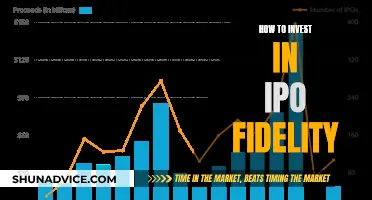
Index funds are a popular investment choice due to their instant diversification benefits, ease of investing, and low costs. They are mutual funds or exchange-traded funds (ETFs) that mirror a specific index or market portfolio, aiming to match its performance. While investing in multiple index funds can provide further diversification, it may also lead to unnecessary complexity without added benefits. The key consideration is to ensure that the underlying stocks across different index funds are not the same, as this would defeat the purpose of diversification.
Index funds offer a simple and cost-effective way to gain exposure to a diversified portfolio of shares and other financial assets. They are passively managed, resulting in lower fees compared to actively managed funds. Additionally, their broad diversification helps to lower overall investment risk. However, it's important to remember that diversification works both ways, so while it smooths out volatility, it may also limit the upside potential.
When considering investing in multiple index funds, it's crucial to examine the underlying stocks or assets within each fund. If the funds track the same or similar indices, there may be significant overlap in their holdings, providing little to no added diversification benefit. In such cases, investing in multiple funds may only increase complexity without enhancing returns.
On the other hand, if the funds track different indices or focus on distinct market segments, investing in multiple index funds can provide true diversification. For example, you could invest in an S&P 500 index fund for broad market exposure and complement it with an extended market index fund or an international index fund.
In conclusion, the decision to invest in multiple index funds depends on the level of diversification desired and the potential benefits it brings. It's important to research the underlying holdings of each fund to ensure they align with your investment goals and provide true diversification.
| Characteristics | Values |
|---|---|
| Ease of investment | Easy to invest in |
| Fees | Low fees |
| Performance | Often perform very well |
| Risk | Low risk |
| Tax | Tax advantages |
| Management | Passively managed |
| Transaction costs | Lower transaction costs |
| Diversification | Instant diversification |
| Exposure | Exposure to a wide variety of stocks |
| Returns | Attractive returns |
What You'll Learn

What are the benefits of investing in index funds?
Index funds are a type of mutual fund or exchange-traded fund (ETF) that tracks the performance of a market index, such as the S&P 500, by holding the same stocks or bonds or a representative sample of them. They are a passive investment strategy, meaning they aim to replicate the performance of a specific index rather than actively picking securities. Here are some of the benefits of investing in index funds:
Low Costs and Fees
Index funds typically have lower expense ratios and management fees compared to actively managed funds. This is because they are passively managed, meaning they simply replicate the performance of a market index rather than actively trading securities. Index funds also tend to have lower transaction costs since they trade less frequently. These lower costs can make a significant difference in returns over time.
Broad Diversification
Index funds provide instant diversification by allowing investors to own a wide variety of stocks across different sectors and industries. This helps to minimize risk and reduce the likelihood of losing money. For example, an index fund that tracks the S&P 500 would hold about 500 different stocks, diversifying the investor's portfolio across a broad range of companies.
Attractive Returns
Historically, index funds have outperformed actively managed funds over the long term. This is due to their low costs and the fact that the overall stock market tends to increase in value over time. Even top investment firms have struggled to consistently outperform index funds, as demonstrated by Warren Buffett's $1 million bet that an S&P 500 index fund would beat the returns of an actively managed hedge fund over 10 years, which he won.
Tax Efficiency
Index funds are considered more tax-efficient than actively managed funds because they have lower turnover ratios, meaning they buy and sell securities less frequently. This results in fewer capital gains distributions, which can reduce the tax burden for investors.
Simplicity and Accessibility
Index funds are easy to invest in and are suitable for both beginner and experienced investors. They do not require extensive research or active management, making them a passive and low-maintenance investment option. Additionally, they often have low investment minimums or no minimums at all, making them accessible to investors with varying financial situations.
Ethical Fund Investment: Getting Started and Doing Good
You may want to see also

What are the drawbacks of investing in index funds?
Index funds are a popular investment choice due to their broad diversification, low fees, and long-term performance. However, they also come with certain drawbacks that investors should consider before making any decisions. Here are some of the main disadvantages of investing in index funds:
Lack of Downside Protection
The performance of an index fund is directly linked to the index it tracks. This means that if the market experiences a downturn, your investment in an index fund tracking that market will also lose value. Index funds do not provide a buffer or protection against market corrections and crashes, leaving investors vulnerable to the downside risks of the market.
Lack of Reactive Ability
Index funds do not allow for proactive adjustments based on market conditions. For example, if a particular stock becomes overvalued, it will carry more weight in the index. This goes against the ideal investment strategy of reducing exposure to overvalued stocks. With index funds, investors cannot act on their knowledge of market dynamics and are restricted to passive investing.
No Control Over Holdings
Index funds offer little to no control over the individual holdings within the portfolio. Investors may have specific companies or sectors they want to invest in or avoid for various reasons, such as personal beliefs or research-backed preferences. Index funds take away the flexibility to tailor investments according to personal preferences and instead provide a predetermined set of holdings.
Limited Exposure to Different Strategies
Index funds typically track a specific market index, limiting investors' exposure to different investment strategies. There are numerous successful investing strategies, and by solely focusing on index funds, investors may miss out on opportunities presented by other approaches. Combining different strategies can often lead to better risk-adjusted returns, but index funds offer limited flexibility in this regard.
Dampened Personal Satisfaction
Investing in index funds may reduce the sense of personal satisfaction and excitement that comes with making individual stock picks. Some investors enjoy the process of researching and selecting stocks, and index funds take away this aspect of active investing. Even with index funds, investors may still find themselves constantly checking market performance and worrying about economic conditions without the satisfaction of being able to make tactical adjustments.
A Smart Guide to Investing in DFA Funds
You may want to see also

How do I choose which index funds to invest in?
Index funds are a great way to invest in a diversified portfolio of stocks, but choosing the right one for you can be tricky. Here are some things to consider when deciding which index fund to invest in:
- Fees: Index funds typically have low fees, but it's important to compare the expense ratios of different funds before investing. Be sure to consider the impact of fees on your overall returns.
- Performance: Look at the long-term performance of the index fund to get an idea of potential future returns. Keep in mind that past performance does not guarantee future results.
- Diversification: One of the main benefits of index funds is diversification. Consider the geographic location and market sector of the investments in the fund. Are they diversified across different industries, countries, or market sectors?
- Risk: Index funds are generally considered lower risk than individual stocks due to their diversification. However, it's important to remember that they can still lose money, especially if they are narrowly diversified.
- Investment goals: Choose an index fund that aligns with your investment goals and risk tolerance. For example, if you want exposure to a specific industry or market, look for a fund that focuses on that area.
- Fund options: Not all brokers offer the same mutual funds, so check with your broker to see what funds are available to you. ETFs are usually available from all brokers since they are traded on an exchange.
- Taxes: Mutual funds tend to be less tax-efficient than ETFs because they often pay taxable capital gains distributions at the end of the year.
- Fidelity ZERO Large Cap Index: This mutual fund tracks the Fidelity U.S. Large Cap Index and has a 0% expense ratio.
- Vanguard S&P 500 ETF: This ETF tracks the S&P 500 index and has a low expense ratio of 0.03%.
- SPDR S&P 500 ETF Trust: This ETF is one of the largest and most popular, tracking the S&P 500 index with a 0.095% expense ratio.
- IShares Core S&P 500 ETF: This ETF is sponsored by BlackRock and tracks the S&P 500 index with a low expense ratio of 0.03%.
- Schwab S&P 500 Index Fund: This mutual fund is sponsored by Charles Schwab and has a very low expense ratio of 0.02%.
Index Funds: Invest Now or Miss Out?
You may want to see also

How do I buy index funds?
Index funds are a great investment for building wealth over the long term. They are a group of stocks that mirror the performance of an existing stock market index, such as the Standard & Poor's 500 index.
- Have a goal: Before investing in index funds, it is important to know what you want to achieve with your money. Index funds are ideal for long-term goals, especially if you are saving for retirement.
- Research index funds: There are many types of index funds, so it is important to research which one is right for you. Consider factors such as company size and capitalization, geography, business sector or industry, asset type, and market opportunities.
- Pick your index funds: When choosing an index fund, cost is an important factor. Index funds are known for being a low-cost investment option, but don't assume that all index funds are cheap. Compare management costs between funds that track the same index.
- Decide where to buy your index funds: You can purchase index funds directly from a mutual fund company or a brokerage. When choosing where to buy, consider fund selection, convenience, trading costs, impact investing, and commission-free options.
- Open an investment account: To purchase shares of an index fund, you will need an investment account. You can use a brokerage account, individual retirement account (IRA), or Roth IRA.
- Buy index fund shares: You can now buy shares of your chosen index fund through your investment account. The share price and your budget will determine how much you are willing to spend.
- Monitor your index funds: While index funds are passive investments, it is still important to keep an eye on their performance. Ensure that the index fund is mirroring the performance of the underlying index and review the fees to make sure they are not too high.
By following these steps, you can invest in index funds to build wealth over the long term while keeping costs relatively low.
SBI Bluechip Fund SIP: Smart Investment Strategy
You may want to see also

Are index funds a good investment strategy?
Index funds are a popular investment strategy, offering a range of benefits to investors. They are diversified, low-cost, and easy to invest in, making them a good option for beginners.
Index funds are a type of mutual fund or exchange-traded fund (ETF) that tracks a specific index, such as the S&P 500 or the Nasdaq-100. They aim to replicate the performance of the index by holding a basket of stocks or other financial assets that mirror the index's composition. This means that by investing in an index fund, you can instantly diversify your portfolio across a broad range of assets with just one trade. Diversification helps to reduce the volatility of your portfolio and lower your risk, as you are not dependent on the performance of a few individual stocks.
Another advantage of index funds is their low cost. They are passively managed, meaning they do not have a team of analysts and portfolio managers actively trading the fund. As a result, they have much lower management fees and transaction costs than actively managed funds. These lower costs can make a significant difference to your returns over time.
Additionally, index funds are easy to invest in. They can be purchased directly from the fund company or through a broker, and many brokers now allow you to trade ETFs without commissions. When deciding which index fund to invest in, it is important to consider factors such as the fund's expenses, taxes, investment minimums, long-run performance, and trading costs.
However, there are also some drawbacks to investing in index funds. One of the main disadvantages is the lack of downside protection. If the market experiences a correction or crash, an index fund will fall with it, leaving you vulnerable to losses. Index funds also lack the ability to react to changing market conditions. For example, if a stock becomes overvalued, it will carry more weight in the index, even though investors may want to reduce their exposure to that stock.
Overall, index funds can be a good investment strategy, particularly for beginners, as they offer instant diversification, low costs, and ease of investment. However, it is important to consider the potential drawbacks and conduct thorough research before investing.
Reallocating Your Investment Funds: A Schwab How-To Guide
You may want to see also
Frequently asked questions
Index funds are a low-cost investment option that provides broad diversification and lowers risk. They are easy to invest in, have low fees, and often perform very well.
Index funds do not offer downside protection, so if the market drops, your fund will drop too. They also lack the ability to react to advantageous behaviour, such as when a stock becomes overvalued. Additionally, investors have no control over the individual holdings in the portfolio and are limited to a single strategy.
When choosing an index fund, consider the geographic location of the investments, the specific industry or market sector the fund is investing in, and the market opportunity. Compare the expenses of each fund, considering both the expense ratio and trading costs. It is also important to look at the long-run performance of the fund and ensure that it aligns with your investment goals and risk tolerance.
You can buy index funds through your brokerage account or directly from an index fund provider.







